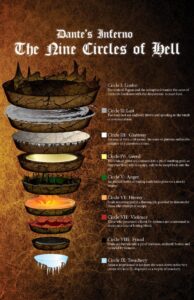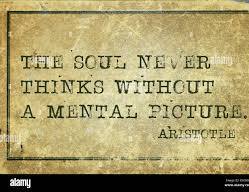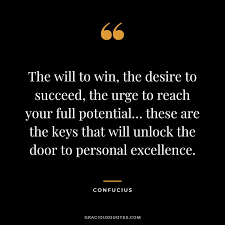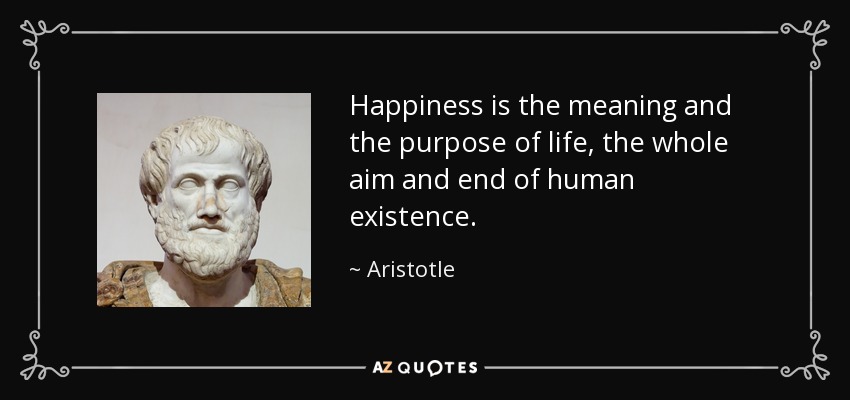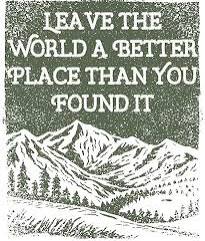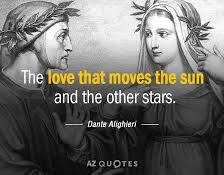To read today’s post in its optimal format, please go to the Just A Thought website. Please click here.
Sometimes you think you know something, but when you try to explain it you discover that you really have no clear idea of what you mean.
That happened to me when I was teaching a college class on great works of literature.
We were reading Dante’s “The Inferno.”
I was explaining that Dante’s primary concern –- famously stated in the first lines of the poem –- was that at the mid-point of his life, he awoke to find himself lost in the dark wood of worldliness, and he was terrified that he could not get back onto the straight path of virtue.
The poem, I told them, was a warning to us all that —
- we can lose our soul in this world, that
- we create our own hell by our actions, and that
- we cannot escape this hell on our own — we need a guide, and we need God’s grace.
I asked my students what we mean by the word “soul.”
Are we referring to a ghost in a machine, or is it an integral part of our being? If integral, then how can we lose it?
I suggested that we reflect on how we use the word:
- She is a soulful person.
- Gandhi is a great soul.
We considered examples of people who “lost their soul” to drugs, alcohol, pornography, fame, wealth.
One definition we came up with is that soul represents the best you can be –- the highest development of your potentials.
That is not quite satisfactory, though, since it merely refers to human development. There is no spiritual dimension. Finally, I suggested that soul refers to the divine spark in us all. However, that has its own problems, since it only seems to substitute one abstraction for another.
Time ran out and we left it there.
The next day a student came to my office with a question. He was confused.
- What was Dante trying to achieve?
- What would it mean if he regained his soul?
In the five years that I have taught this poem, no one had ever asked that simple question.
And I found myself struggling for an answer.
My first thought was happiness –- Dante was seeking what would truly make him happy.
I said that Aristotle, in his treatise on Ethics, said that we all seek happiness, but we seek it in the wrong places. Only virtue brings happiness.
But what is virtue?
I was stuck again.
Reaching for a practical answer, I suggested the corporal works of mercy:
- feeding the hungry,
- clothing the naked,
- housing the homeless,
- caring for the sick.
But does that mean we are not virtuous unless we spend our lives as social workers?
Is virtue a collection of values: for example the cardinal virtues of prudence, justice, temperance, courage; or the Christian virtues of faith, hope, and love?
That is a list without end, not a definition. And besides, does living a virtuous life mean we have to pursue all of those values to be virtuous?
Good luck.
I briefly thought of describing virtue in the metaphors such as:
- to will one thing;
- to live one’s life in humility, gratitude, and compassion;
- to follow the way that leads to the cross.
No, that might scare him right out of my office.
What I settled on was this: to live a virtuous life is to leave the world a better place. Wherever you find yourself, in your family, your community, your workplace –- make a difference for the good.
As one of my colleagues once said, try to be someone who, when you leave, your colleagues were glad that you were there.
I can try for that.
I seriously doubt that I have it in me to be a hero like Gandhi or King or Mandela. I just don’t think I can live my life in self-sacrifice like Mother Theresa.
But —
I can try to be a good enough teacher so that my students afterwards are thankful that they took my course.
I can try to be a good enough father so that my son, when he becomes a father, thinks back kindly on my example.
I can try to be a husband who is the life partner that his wife wants and needs; a friend who has brought some measure of joy to someone’s life; a citizen who has made some contribution to the common good.
Then it doesn’t matter who you are or what you do.
- If you are a lawyer — bring justice to your small corner of the world.
- If you are an accountant — bring order.
- If you are a street sweeper — bring cleanliness.
If you can do that, people will be glad that you were there.
What does it mean to live a virtuous life?
I think it comes down to living out your version of love in the world. Dante might agree with that.
He took the unrequited love of his life, Beatrice –- the blessed one –- and put her into his great poem as an allegory for God’s love.
Because in this short life, the closest that we will ever come to God’s love is the love of one person for another.
Just a thought…
Joe

